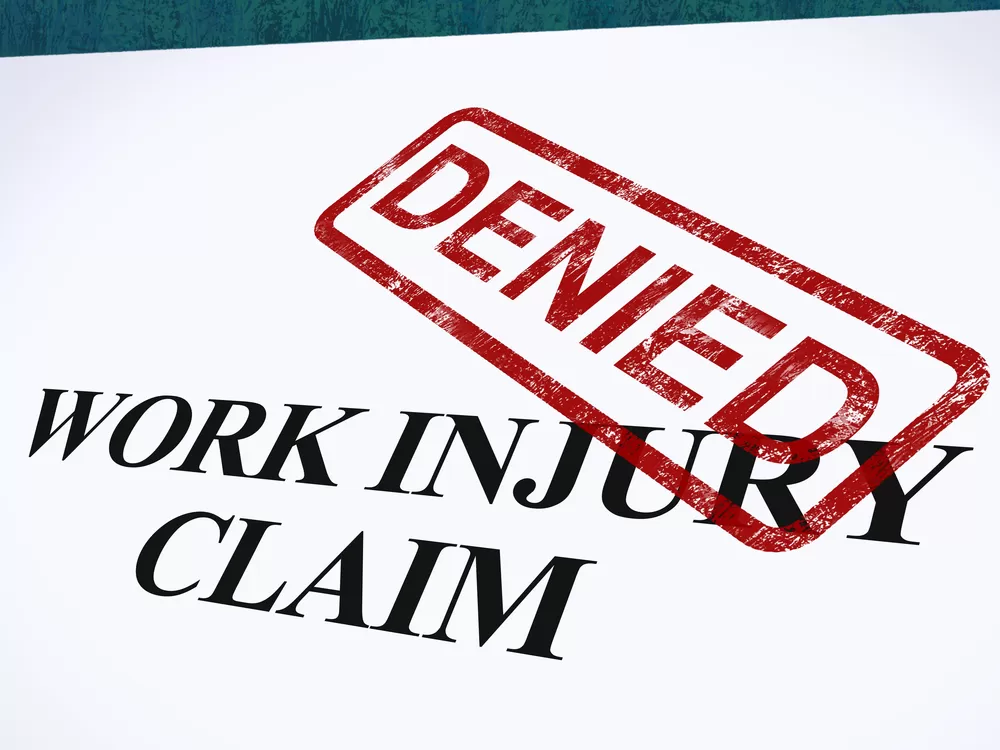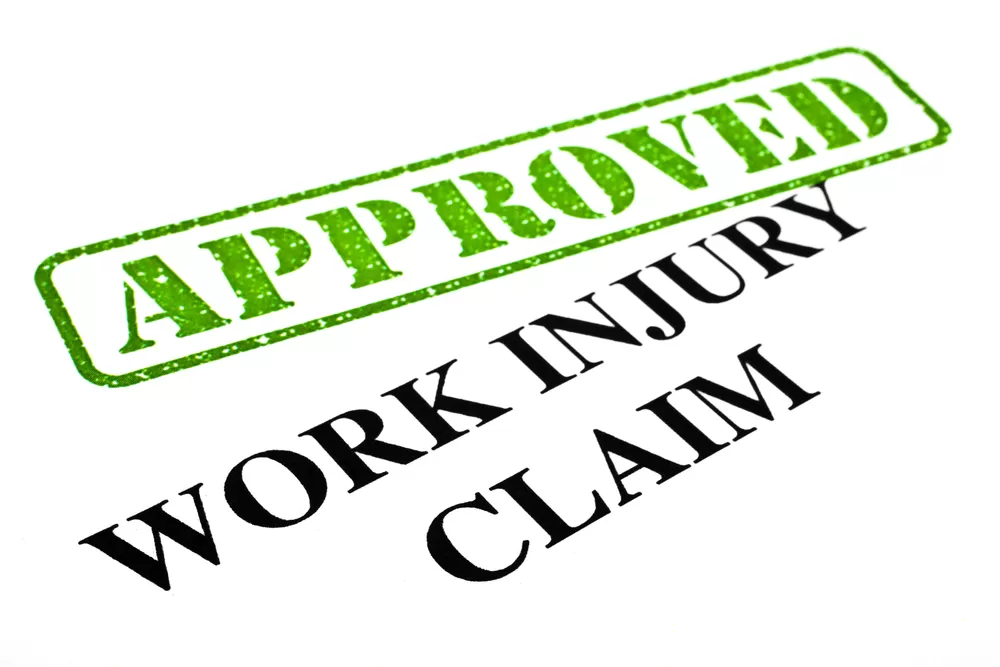After an injury or illness sustained while working, many Americans rely on workers’ compensation settlements in order to support themselves and their families. Sometimes, however, a workers’ comp claim gets denied. If you find yourself in this situation, there are steps you can take to get the financial support you need.
Why Was My Workers’ Comp Claim Denied?

Before moving on, it’s likely important to understand why you did not receive an approval for workers’ comp. Denied claims might result from a number of factors, such as:
- A failed drug test
- Too long of a timeframe between when an injury occurred and when you sought treatment
- Ineligibility for workers’ comp based on your job classification
- Your employer not receiving notice of your injury within a designated time window
- An accident leading to injury not being deemed work-related
- Employer disagreements regarding the events leading up to an injury, or a lack of witnesses to the event that caused it
No matter the reason, you deserve the peace of mind that comes with knowing your finances are secure as you work towards healing. Appealing the denial may be the right move for you.
When Should I Consider Appealing a Workers’ Comp Claim Denial?
In many states in the U.S., you may have opportunity to appeal following a workers’ comp denial. You can also often file an appeal if the compensation offered to you does not adequately cover the costs incurred by medical expenses and/or lost wages. The precise appeals process that you will need to undergo depends on which state you initially filed your claim.
Appealing Workers’ Comp Denial in Maryland
In Maryland, injured workers have 30 days following an insurer’s denial to file an appeal with the Maryland Workers’ Compensation Commission. After receiving your appeal, a court hearing date will be arranged.
At this hearing, you will have the opportunity to state your case for compensation and present additional evidence in your favor. This can include updated medical documentation or new witness statements.
A workers’ compensation commissioner will take a look at all of the facts and make a determination on your claim. A Maryland personal injury attorney can present your case in a clear and concise manner that may speed up the process and get you the money you deserve.
If no satisfactory decision between yourself and the insurer results from the hearing, you may wish to seek mediation. While somewhat time consuming, this voluntary process enlists a neutral third party to help both you and your insurance carrier or employer come to an agreement.
Workers’ Comp Appeals in Virginia

Just like in Maryland, workers in Virginia can initiate the appeals process within 30 days of receiving notice that their compensation claim has been denied. You can file the appropriate Notice of Appeal with the Workers’ Compensation Commission in Virginia. The following hearing regarding your case will be heard in front of a Deputy Commissioner. At that time, the Deputy Commissioner will hand down a verdict regarding your claim.
If this decision still does not fully compensate you for your injuries, you may escalate further to the Full Commission within 30 days. A Northern Virginia workers’ compensation attorney can help you navigate every step of the appeals and escalation process, and they can help build a case that wins.
The highest court that can hear your case is the Virginia Court of Appeals. While this court will not consider new evidence in your case, they will review prior proceedings to determine if there was strict adherence to legal code throughout the process.
Appeals for Workers’ Comp Denial in Washington, D.C.
Workers’ comp denial appeals are not quite as simple in Washington, D.C. After receiving notice of denial, you can request an informal conference with the D.C. Office of Workers’ Compensation. The claims examiner present at this meeting will act in a similar manner to a mediation expert, in which the examiner will attempt to help both you and the insurer come to a mutually beneficial agreement.
If this does not work, you can request a formal hearing with the Administrative Hearings Division. A judge oversees these hearings and will take new evidence into consideration. Both you and your employer or insurer can submit these pieces of evidence, so it’s wise to consult a D.C. workers’ compensation lawyer prior to any court proceedings. They can help you present a solid case to the judge that may hasten the awarding of your compensation package.
If no positive results come from this meeting, you can request further review from the Compensation Review Board. The Board in question consists of a panel of judges who will consider your case. In the event that they still deny your claim, you can ask for further consideration, in which the Board looks over the case one more time.
The final stop of the appeals process in D.C. is the Court of Appeals. This court will take into account the findings of all prior legal proceedings involving your claim.
How to Win an Appeal When a Workers’ Comp Claim Is Denied

A workers’ comp claim denial can come with feelings of fear and anxiety. As you put together your appeal argument, assemble as much evidence in support of your claim as possible. You’ll want to locate documentation of the injury or illness sustained, as well as the full testimonies of any relevant witnesses. Records kept on file by your employer concerning your claim may also help your case.
When you’re ready to start the appeals process, rely on a trusted workers’ compensation attorney to help get you your due payment. The attorneys at Koonz, McKenney, Johnson & Depaolis, LLP. have the experience and the know-how to win your appeal and get you back to the things that matter most. Contact us today for a free consultation.

